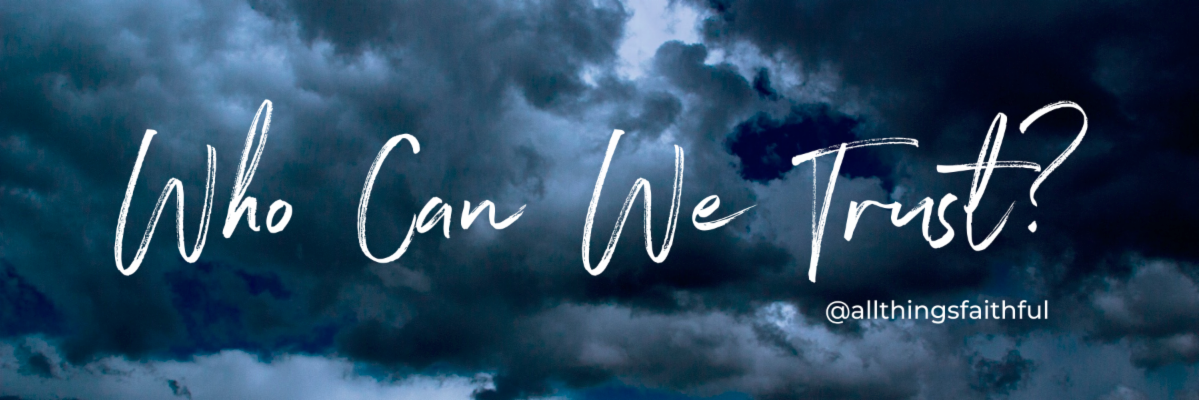
Who Can We Trust?
We all place our trust in something.
Many of us place trust in family and friends – those we know we can count on. Others place it in government to protect and provide. Still others place it in their own abilities to make money and succeed. This is especially true in times of trouble and turmoil, or when problems seem to overwhelm us.
But what happens when all of these fall short?
There is one place we can turn that will never fail us – the power and salvation of God. David writes in Psalm 28:7“The Lord is my strength and my shield; in him my heart trusts.” When we trust in God with all our heart and strength He will guide our paths and shield us with His goodness.
Of course, for some (even those of us with deep faith), this is occasionally easier said than done. The fact is, in times of hardship or strife not everyone finds comfort in believing in the “four G’s” of God: that He is great, glorious, good, and gracious.
Doubting God is as old as Scripture. We read of Satan placing doubt in the mind of Eve (Genesis 3:4-5). During their Exodus from Egypt, the Israelites began doubting God’s Will when Moses ascended Mount Sinai, instead convincing Aaron to melt their gold to create a golden calf they could idolize (Exodus 32:1). Even the disciples themselves doubted Jesus at various times (Matthew 28:17, John 20:24-25, Luke 24:11).
Why is this so common today, among even devout Christians? Simply put, we come to trust what we know.
If the God we know seems distant and uncaring, never answering our prayers the way we expect, we shift our trust to things we can see and touch and feel. This is the God Satan presented to Eve in the Garden and to Jesus during his 40 days of fasting (Matthew 4:1-11).
If the God we know rejects us because of our imperfections, we seek comfort with those who are like us. This was the God known to Matthew to tax collector before Jesus opened his eyes to the truth (Matthew 9:9-12).
However, if the God we know is steadfast, always delivering on His promises, we will see His plan unfold in our lives in unimaginable ways. This was the God Jesus knew in Gethsemane when he said “Not my will but yours. (Mark 14:36)”
Ultimately, our salvation is not based on anything we do or fail to do, anything we see or fail to see. Instead, it is based solely on God’s eternal, unchanging character. Our fear is based on the lie that God’s love is not enough to redeem us.
Yet, that fear can be transformed into faith the instant we place our trust in God. Turning to friends, family, doctors, politicians, experts, and others is not always bad in specific circumstances, but for God, no problem is too large that His power can’t overcome it.
It’s amazing how our perspective changes when we stop focusing on how big our problems are and start looking at how big our God is. Like David, we’ll find our faith grows as we remember God is always for us, praise His goodness, and remember His promises.
Blessings.


